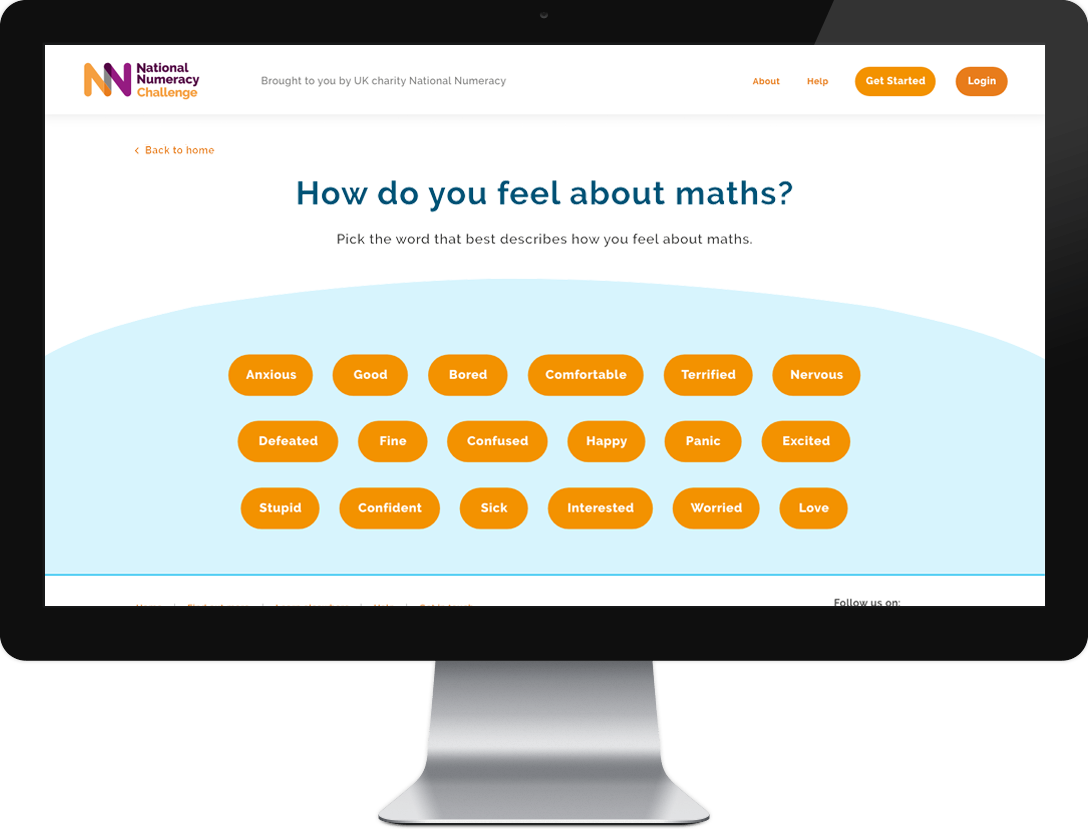Numeracy and the cost-of-living crisis
Two fifths of Brits (40%) are avoiding thinking about the rise in the cost of living, with nearly seven in 10 of those feeling there is little they can do, or that it’s simply out of their control. Over two thirds (69%) say their lack of mathematical ability hasn’t been a massive problem for them in the past – until now, as the cost of living crisis bites.
The survey of 3,000 adults was conducted ahead of the fifth annual National Numeracy Day - Wednesday 18 May – by the charity National Numeracy and founding supporter KPMG.
While half of those surveyed say they confidently know their total monthly outgoings, nearly the same proportion (45%) say they rely either entirely or in part on someone else to take care of the bills for them. The recent price hikes were also found to have left 45 per cent struggling to budget, 37 per cent baffled as to how much things should cost any more, and 57 per cent looking for ways to stretch their cash further.
Over a third (36%) of people admitted that it is just too stressful to even begin to think about how they’re going to pay the bills.
Bina Mehta, Chair of KPMG in the UK, who commissioned the research, said: “The rising cost of living puts our nation’s numeracy skills firmly under the microscope. We all use numbers to navigate day-to-day life – from understanding interest rates to working out value for money while shopping – yet nearly half of the UK’s working population has the expected numeracy levels of a primary school child.
“That has real consequences for those lacking confidence, leaving them more vulnerable to debt, unemployment and fraud. Beyond the concerning impact on individuals, poor numeracy skills also inhibit our country’s productivity and ability to tackle inequality. Numeracy – alongside literacy and lifelong learning – is a key building block for improved social mobility. It lays the foundation for a healthier and more inclusive economy.”
Lack of number confidence
When asked about attitudes towards numeracy, nearly two fifths (38%) of respondents feel uncomfortable seeking help with everyday maths – be it adjusting a recipe to serve more or fewer people or working out if they’ve received the correct change.
Over a third (34%) say past experiences have made them doubt their mathematics ability, and the same amount (33%) say they always seem to get things wrong. Of those who do lack number-confidence, nearly half (49%) would like to improve their numeracy, but don’t know where to start.
Nearly half of respondents (49%) admitted to making jokes about their lack of numeracy skills to make light of something they actually worry about. However, the same proportion (48%) believe that a lack of confidence surrounding numeracy has held them back.
Sam Sims, Chief Executive of charity National Numeracy, said: “As this new research shows, low numeracy can prevent us from being in control of our money and seeking help when we need to. But everyone can improve their confidence with numbers – National Numeracy has helped over 420,000 people do just that!
“Feeling confident with maths can help us make sense of our money and with the cost of living crisis, this is more important than ever.
“National Numeracy Day raises awareness of the importance of numeracy to personal lives, career development and the economy. And it empowers people to take the first steps to improving their number confidence and skills at this critical time.”
Bina Mehta from KPMG UK added: “Nearly a third of people believe that if you are bad with numbers, there is no way to improve, but we need to dispel that myth. It’s a skill like any other that can be improved.
“Now more than ever, our collective efforts will help to improve number confidence for all. It may not be a silver bullet in solving the cost-of-living crisis alone, but it is at the heart of helping people confidently navigate it.”
If you’d like to improve your own numeracy skills, then head to the National Numeracy Challenge
For media queries, please contact:
Julia Day, External Relations Director, National Numeracy
Methodology of research:
KPMG UK commissioned research agency 72Point (OnePoll) to conduct a nationally representative survey of 3,000 adults (18+) – between 5th and 8th May 2022 – on various questions assessing attitudes toward the cost-of-living crisis and numeracy. Respondents were targeted on a nationally representative basis for age, gender and region.






